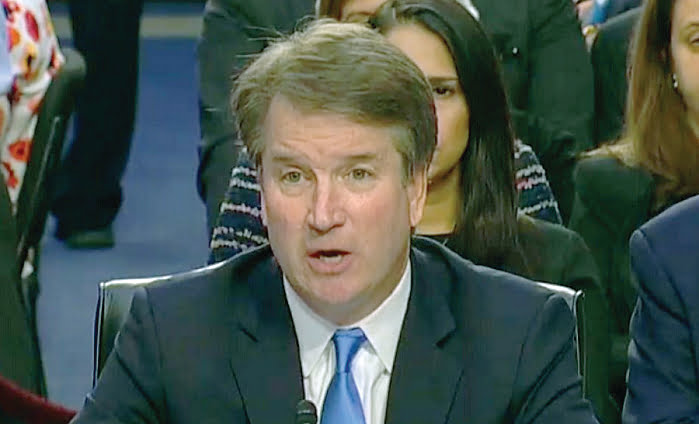On July 9, President Trump announced his nomination of Brett Kavanaugh, 53, to fill retiring Justice Anthony Kennedy’s seat. The selection of Supreme Court justices had been one of the hottest campaign issues in the 2016 presidential contest. Kennedy’s retirement fueled fears among abortion activists that a new justice could swing the Court to a conservative majority and may be a deciding opinion on vital issues like abortion restrictions and Roe v. Wade.
On Friday, September 28, the Senate Judiciary Committee voted 11-10, along party lines, to pass the nomination of Judge Brett Kavanaugh to the full Senate, with the expectation that a vote of the full Senate would follow an FBI investigation.
Kavanaugh has served for 12 years on the U.S. Circuit Court of Appeals for D.C., arguably the second-most important federal court in the nation. His record shows respect for the Constitution, protection of religious liberty, and enforcing restrictions on abortion. Kavanaugh graduated from Yale Law School and is recognized as among the most qualified candidates in the country. Some compare his judicial approach to that of the late Justice Antonin Scalia.
The American Bar Association, the nation’s leading lawyer’s group, gave Kavanaugh a unanimously well-qualified rating, saying, “Our rating of unanimously well-qualified reflects the consensus of his peers who have knowledge of his professional qualifications.”
Upon Kavanaugh’s nomination, Planned Parenthood pledged to “fight like hell” against the nomination, saying, “Judge Brett Kavanaugh’s nomination to the Supreme Court is the biggest threat to our constitutional right to abortion we’ve seen in years. This is a fight we simply cannot afford to lose.”
Kavanaugh’s review by the Senate Judiciary Committee, whose job it is to “advise and consent,” included personal meetings with senators, four days of public testimony, and responses to 1,200 written questions. The testimony’s beginning in early September was characterized by screaming protestors who had to be removed from the room by police officers. Democrat committee members delayed the proceedings nearly 90 minutes in an attempt to have the hearing adjourned. Once the hearing began, it was characterized by partisanship, protests, and political posturing. Protestors came from across the country, some admitting to being paid to interrupt the Senate hearings.
During Kavanaugh’s hearing, he was careful to discuss abortion within the context of what the Supreme Court decided in the precedent-setting cases of Roe v. Wade and Planned Parenthood v. Casey without biasing the hearings with his own views in a manner that would force him to recuse himself in cases before the court concerning abortion. Kavanaugh also explained, “A judge must be independent and must interpret the law, not make the law. A judge must interpret statutes as written, informed by history and tradition and precedent.” He confirmed there is no “specific” right to abortion in the Constitution and refused to promise to never overturn Roe v. Wade.
Kavanaugh has ruled that the government can’t force Christian groups to pay for abortions by ruling against the Obama HHS mandate. In a case involving the ACLU and the Department of Health and Human Services, Kavanaugh said the Trump administration did not have to facilitate an unlawful immigrant minor to get an abortion.
Following the hearing, what appeared to be a smooth path to confirmation took on a different direction when, on September 13, shortly before the committee vote was to take place, Senator Diane Feinstein (D-CA) released a letter that she had received from a woman on July 30 who said she had been sexually assaulted by Kavanaugh. The 7-week delay lent credence to the charge that the process was being politicized. The letter’s author, Dr. Christine Blasey Ford, had asked to remain anonymous.
The letter’s release resulted in another committee hearing on September 27, where two very different versions of the truth were presented. Senator Lindsey Graham (R-SC) characterized the committee’s proceedings as “the most unethical sham since I’ve been in politics.”
National pro-life leaders and organizations have expressed high hopes for Kavanaugh and the future of unborn babies’ rights and have praised him for his pro-life record.
[Editor’s note: Additional developments in the nomination process will occur prior to this publication’s mailing.]





